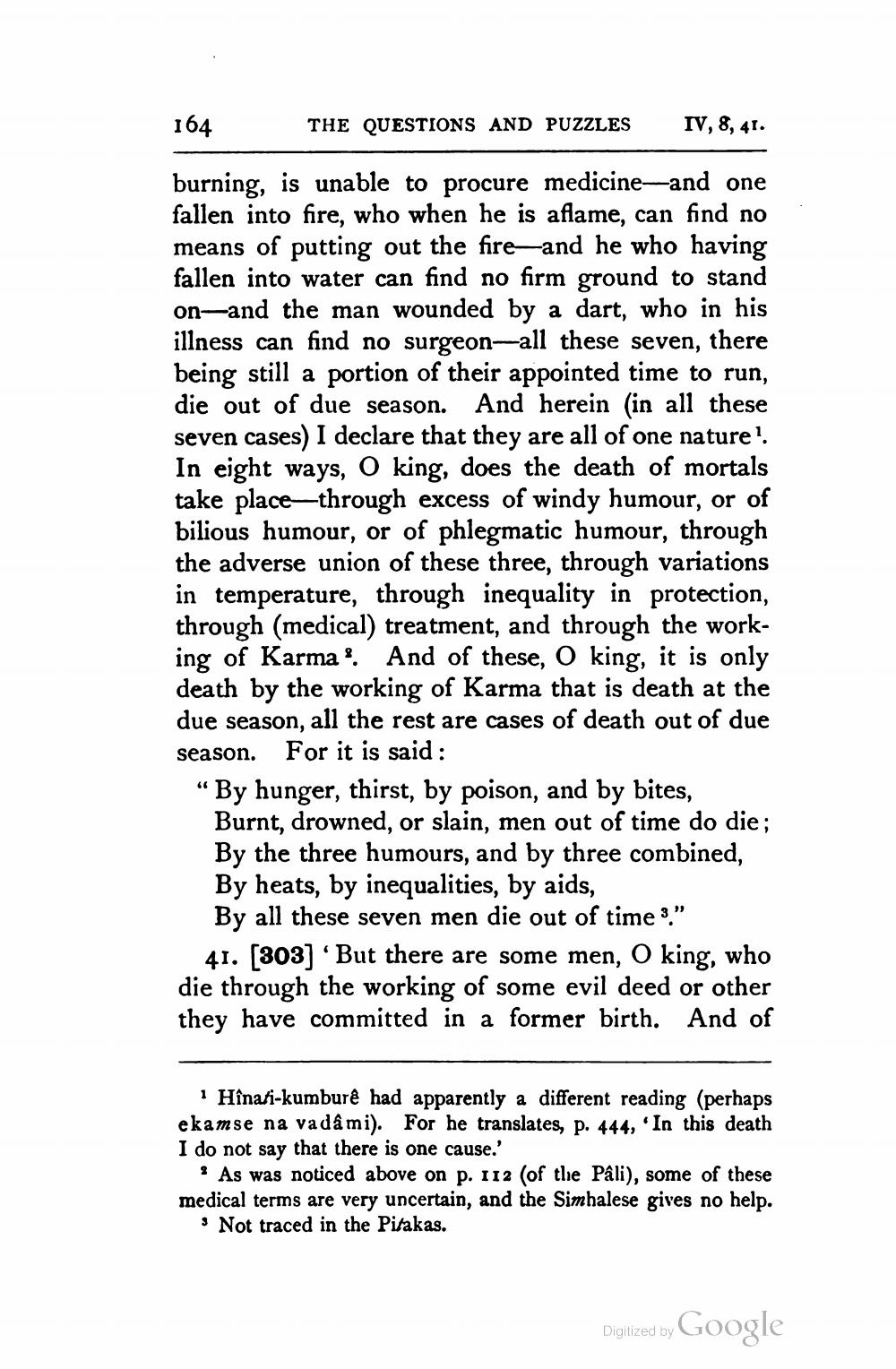________________
164
THE QUESTIONS AND PUZZLES
IV, 8, 41.
burning, is unable to procure medicine and one fallen into fire, who when he is aflame, can find no means of putting out the fire and he who having fallen into water can find no firm ground to stand on—and the man wounded by a dart, who in his illness can find no surgeon-all these seven, there being still a portion of their appointed time to run, die out of due season. And herein (in all these seven cases) I declare that they are all of one nature! In eight ways, O king, does the death of mortals take place—through excess of windy humour, or of bilious humour, or of phlegmatic humour, through the adverse union of these three, through variations in temperature, through inequality in protection, through (medical) treatment, and through the working of Karma? And of these, O king, it is only death by the working of Karma that is death at the due season, all the rest are cases of death out of due season. For it is said: “By hunger, thirst, by poison, and by bites, Burnt, drowned, or slain, men out of time do die; By the three humours, and by three combined, By heats, by inequalities, by aids, By all these seven men die out of time 3.” 41. [303] ‘But there are some men, O king, who die through the working of some evil deed or other they have committed in a former birth. And of
1 Hînati-kumburê had apparently a different reading (perhaps ekamse na vadami). For he translates, p. 444, 'In this death I do not say that there is one cause.'
. As was noticed above on p. 112 (of the Pali), some of these medical terms are very uncertain, and the Simhalese gives no help.
Not traced in the Pitakas.
Digitized by Google




